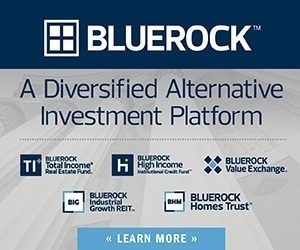Fund Accounting for Today’s Funds
July 6, 2023 | David Fisher | Phoenix American
Private equity funds have unique fund accounting challenges, the more so because no two private equity funds are quite the same. Fund managers are well-advised to engage a third-party fund accounting provider and the choice of provider is an important one. Your fund accounting partner should have experience – not only with all the structures and strategies of private equity funds generally – but with adapting to the specific way that any one manager may want to do business.
A Consultative Partner
 Distribution waterfalls, as one example, can be a particular challenge for fund accounting. The alignment of interests between the GP and the LP is expressed most importantly in the distribution of fund proceeds as defined by the waterfall structure. However, waterfalls can be complex. Your fund accounting provider should be able to calculate and distribute according to your distribution waterfall, however complex it might be. But, regardless of their processing capability, your fund accounting firm should be able (and inclined) to advise you if your waterfall structure is too complex, either for fund accounting to calculate or for investors to understand. An experienced fund accounting team knows when a waterfall structure is so intricate it will cost more for them to calculate and process than you likely want to spend on every distribution. Their experience will also tell them that investors are confused and upset by some waterfall structures that seem to be misleading or self-serving for the manager. This is one of many important operational considerations for which your fund accounting team should be able to give you some perspective.
Distribution waterfalls, as one example, can be a particular challenge for fund accounting. The alignment of interests between the GP and the LP is expressed most importantly in the distribution of fund proceeds as defined by the waterfall structure. However, waterfalls can be complex. Your fund accounting provider should be able to calculate and distribute according to your distribution waterfall, however complex it might be. But, regardless of their processing capability, your fund accounting firm should be able (and inclined) to advise you if your waterfall structure is too complex, either for fund accounting to calculate or for investors to understand. An experienced fund accounting team knows when a waterfall structure is so intricate it will cost more for them to calculate and process than you likely want to spend on every distribution. Their experience will also tell them that investors are confused and upset by some waterfall structures that seem to be misleading or self-serving for the manager. This is one of many important operational considerations for which your fund accounting team should be able to give you some perspective.
The Diversity of Private Equity Funds
The variety of fund offerings is another test of experience for fund accounting firms. When evaluating potential fund accounting partners, you should consider the pedigree of the firm and what limitations on the scope of their knowledge it may represent. A fund accounting firm is often an offspring of a particular fund company or industry-specific accounting organization. There may be extensive experience with fund accounting for multifamily real estate but little knowledge of the intricacies of a debt fund, energy fund or infrastructure fund. The firm may have no experience with the allocations and fee calculations your fund will demand. There may also be little experience with multiple investor classes or regulatory reporting requirements. You should be aware of the systems that a fund accounting firm is using and whether they are suited to your structure, strategy and asset class. Fund accounting systems are specialized and customizable for funds of various types. A fund accounting firm may be able to service your fund using Excel spreadsheets but only with extensive hourly charges to you due to the fact that they are not using a purpose-built fund accounting system.
Investor Expectations
 Your most important investors, ultra-high-net-worth individuals and institutions, are more demanding than ever in their reporting requirements. These investors demand detailed quarterly or even monthly reports with exhaustive capital account statements and they want them within days of the period close. Not satisfied with standard reporting output, these investors demand customization. Institutional investors may require reporting that adheres to the template recommended by the Institutional Limited Partner Association (ILPA). The ILPA reporting template is a granular and exhaustive reporting package beyond the capabilities of many fund accounting teams. Those who are able to produce it may take prohibitively long to do so depending on the systems they are utilizing for fund accounting.
Your most important investors, ultra-high-net-worth individuals and institutions, are more demanding than ever in their reporting requirements. These investors demand detailed quarterly or even monthly reports with exhaustive capital account statements and they want them within days of the period close. Not satisfied with standard reporting output, these investors demand customization. Institutional investors may require reporting that adheres to the template recommended by the Institutional Limited Partner Association (ILPA). The ILPA reporting template is a granular and exhaustive reporting package beyond the capabilities of many fund accounting teams. Those who are able to produce it may take prohibitively long to do so depending on the systems they are utilizing for fund accounting.
Technology is Key
Your back-office architecture must be made up of advanced and specialized technology platforms that work together to simplify and streamline operational functions. Fund accounting, transfer agent, web portal, tax reporting and printing systems that are fully integrated and operated by experienced teams give you the institutional-grade back-office that large organizations and sophisticated investors are looking for as part of their due diligence. Fund accounting and transfer agent systems should also give you a high degree of visibility into the status and activity of your fund to facilitate fund management. Advanced systems feature reporting output geared for the needs of different audiences relevant to your organization: deal teams, GAAP accounting, distribution partners, auditors and fund management. Partnering with a fund accounting firm with these system capabilities and the expertise in their use gives your fund a competitive advantage over in-house administered funds, but your fund accounting partner needs to have a client-focused orientation to understand your needs and customize solutions for you.
Your Fund Accounting Decision
Fund accounting for private equity changes with the growing variety of fund structures, distribution strategies and industry technologies. As an alternative to hiring in-house administration staff with all the attendant frustrations and risks of hiring, training and maintaining personnel, outsourced fund accounting and administration is a smart division of labor. Professionalizing the back office not only reassures and better serves investors but eliminates key-person risk and issues of vacation time, sick time and operational backup. Engaging an experienced, well-equipped and client-oriented fund accounting partner is a smart business move for any alternative investment fund.











